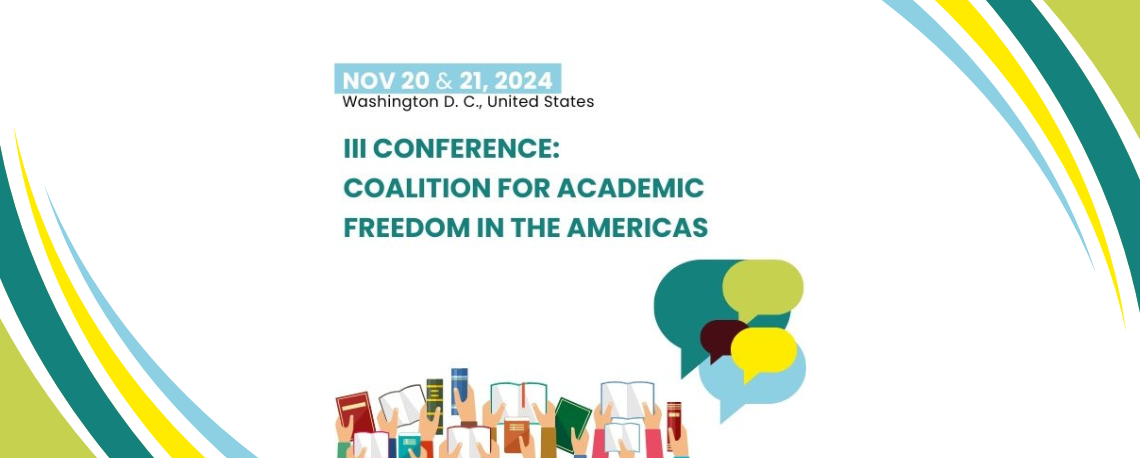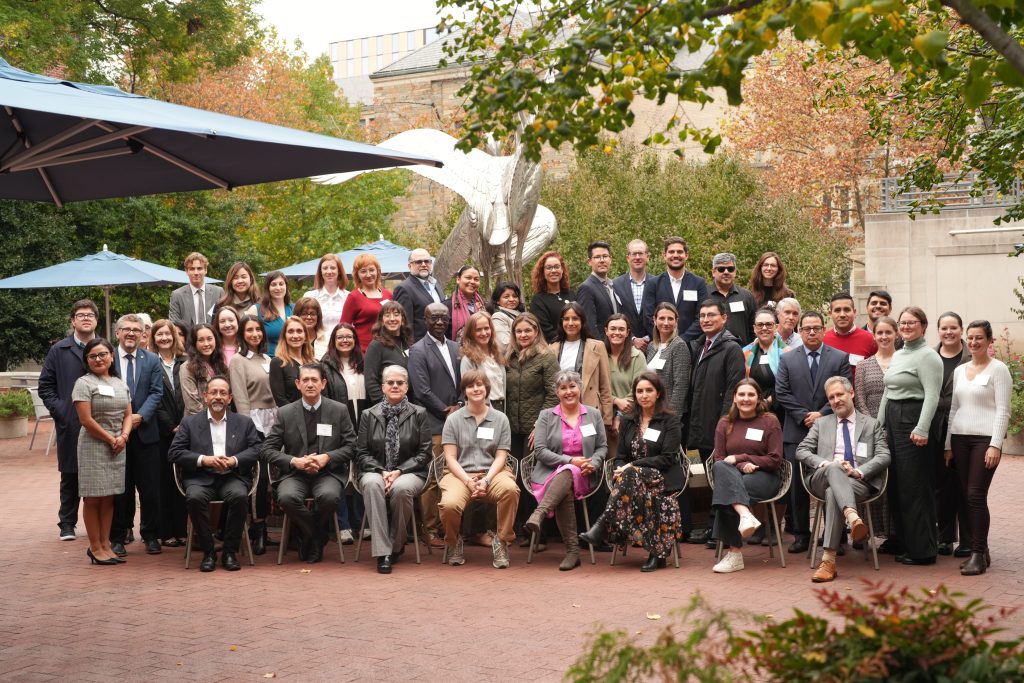
CAFA was pleased to organize the Third Conference on Academic Freedom in the Americas (#CAFA2024) at the University of Notre Dame’s Keough School of Global Affairs, in Washington D.C., United States, on November 20-21, 2024.
The Conference was co-hosted by CAFA and the Pulte Institute for Global Development–part of the Keough School of Global Affairs at the University of Notre Dame, with support from the Central America Research Alliance (CARA), Scholars at Risk (SAR), Universidad de Monterrey (UDEM), and the Human Rights Research and Education Centre (HRREC) at the University of Ottawa.
Scholars, students and academic freedom advocates participated in two days of in-person and online discussions on the challenges and opportunities for protection, advocacy, research, and litigation related to academic freedom and university autonomy.
#CAFA2024 began with the keynote addresses delivered by Farida Shaheed, United Nations Special Rapporteur on the right to education and Fabián Salvioli, human rights lawyer and professor at the University of La Plata, Argentina, who served as UN Special Rapporteur on the promotion of truth, justice, reparation and guarantees of non-recurrence (2018-2024).
The first day’s panels covered topics related to the norms, policies and challenges of implementing academic freedom, the shrinking of academic space; and freedom of expression and academic freedom. The Scholars at Risk team also presented highlights from the Free to Think 2024, an annual report from Scholars at Risk’s Academic Freedom Monitoring Project, which analyzed and documented 391 attacks on scholars, students, and institutions in 51 countries and territories. During this presentation, Scholars at Risk representatives engaged with Catherine Newling, Director of the Office of Western Hemisphere Affairs, Bureau of Democracy, Human Rights, and Labor at the U.S. Department of State, on State perspectives and the role of international assistance in the protection of academic freedom across the Americas.
The second day included panels on student mobilization and organization, Latin American perspectives on academic freedom, protocols on gender-based violence and gender-based violence and sexual harassment.
In the midst of rapid democratic backsliding and increasing threats to educational communities, the conference was an important opportunity to gather and reflect on the state of academic freedom in the hemisphere, to interact and learn from one another, and to explore possible strategies and collective actions that will help advance the respect, protection, and fulfillment of this human right.
The organizers concluded this important meeting by launching a CAFA Call for Action with renewed hope and commitment to work together to make academic freedom and university autonomy a reality.
It was a pleasure, after months of preparation, to meet with CAFA members, friends, colleagues and partners in Washington DC, together in defence of academic freedom and university autonomy. We look forward to next year!

- Download the program of the Conference in English (PDF).
- Download the biographies of our speakers (PDF in English).
- Read the Scholars at Risk (SAR)’s report: Free to Think 2024.
- The recordings of #CAFA2024 are available on the CAFA YouTube Channel.
In the media:
The Coalition for Academic Freedom in the Americas (CAFA) is a non-governmental and not-for-profit network, created in 2021, headquartered at the University of Monterrey (UDEM), Mexico. It was founded by Scholars at Risk, UDEM, and the Human Rights Research and Education Centre (HRREC) at the University of Ottawa.
Its membership spans across the hemisphere, having established institutional relations with key partners from national and international settings. CAFA seeks the promotion, protection, and respect for academic freedom and university autonomy, with the goal of developing relevant human rights standards that serve to protect educational spaces, leverage human rights and strengthen democratic principles in the Americas.
